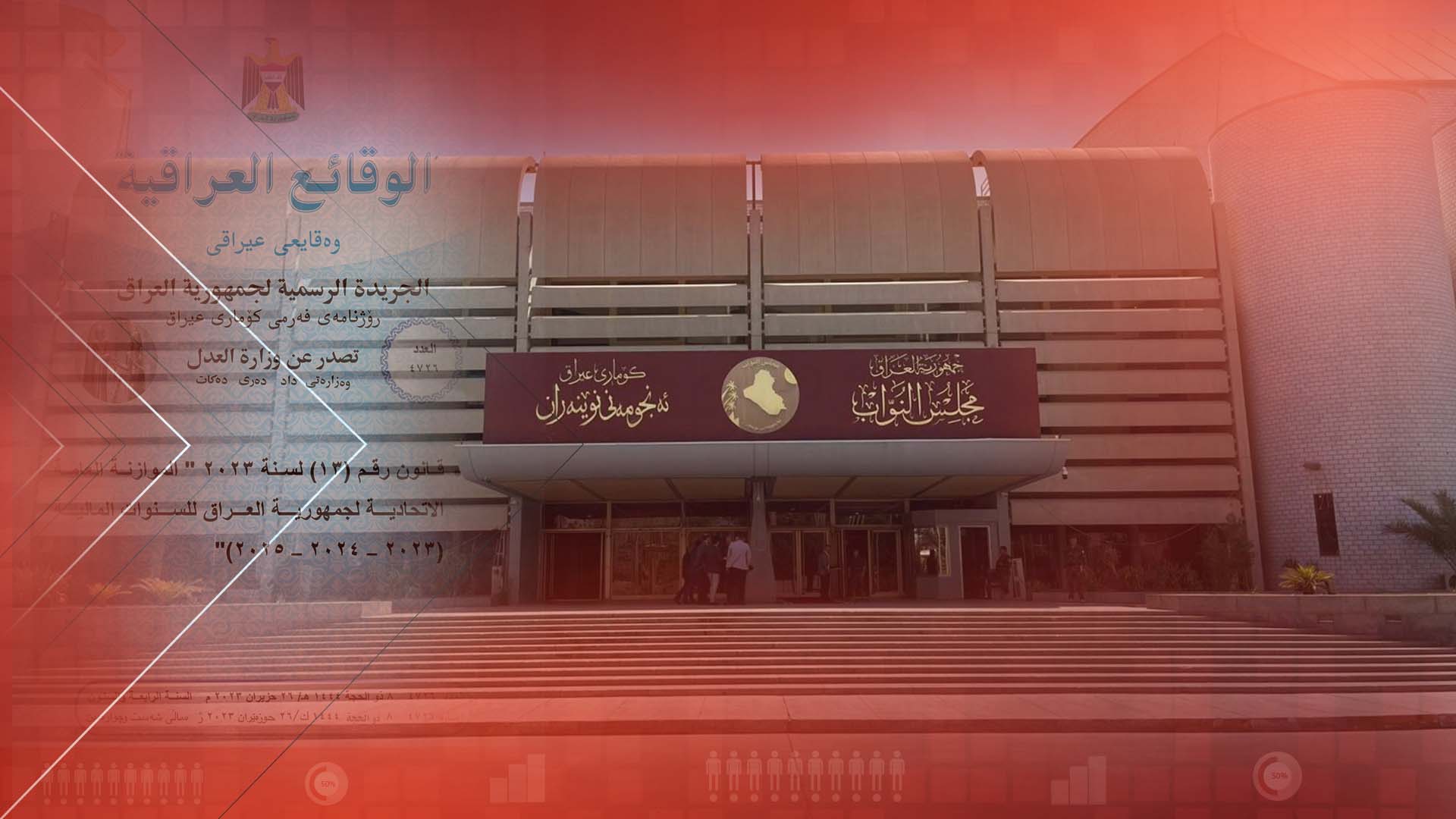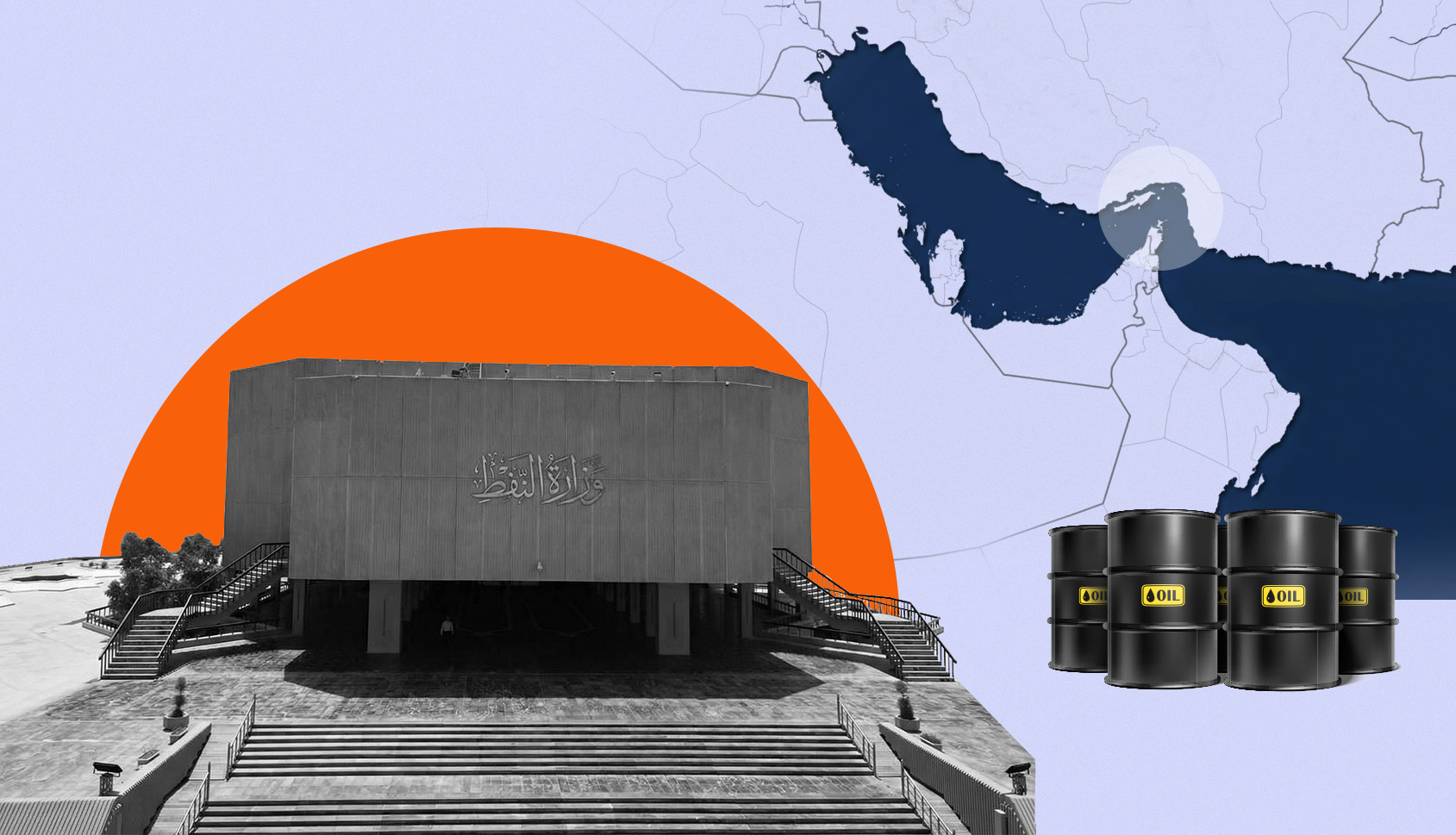Overview
The three-year Iraqi budget provided a comprehensive framework for the country’s revenues and expenditures based on initial estimates. However, the recent census has corrected these estimates, revealing significant discrepancies. As the time approaches to amend and approve the 2025 budget tables, it is imperative to review expenditures, provincial allocations, the Kurdistan Regional Government (KRG) budget, and revenue projections.
Last year, when the 2024 budget was approved in parliament, all revenue and expenditure tables were carried over from the 2023 budget. This allowed the Council of Ministers and the Ministry of Finance to allocate two trillion dinars for central and southern provinces, excluding the Kurdistan Region. Despite the significant discrepancies between the budget figures and the Ministry of Finance's report, no substantive changes were made to the budget provisions. This highlights the need for a more comprehensive review of the 2025 budget.
Now that the 2025 budget is in parliament, attention should not be focused solely on a single-item amendment. The past two years have demonstrated that the projected expenditures and revenues are not being realized as planned. For instance, in the first nine months of 2024, total expenditures amounted to 94.8 trillion dinars, while total revenues reached 114.3 trillion dinars. This indicates a surplus of revenue over expenditure, contrary to the deficit and borrowing outlined in the approved budget tables.
The Iraqi parliament has recently completed the first reading of the 2025 budget amendments, with a particular focus on Article 12, which addresses the production and delivery of oil from the Kurdistan Region to SOMO. The second reading and final approval are now pending.
The key question is whether the government and parliament will limit amendments to Article 12, as requested by the Iraqi Council of Ministers, or take a broader approach in light of the recent census. Will they address expenditure tables, investment allocations, and provincial shares, as well as review oil production volumes and pricing in accordance with OPEC decisions and oil market trends?
The 2025 budget should incorporate the updated figures from the census, anticipated changes in the oil market, and the state's capacity to collect non-oil revenues. It must move beyond reliance on outdated estimates from previous years.
Zero Environmental Investment and 126 Thousand Dinars for the Iraqi Parliament!
According to the Ministry of Finance's report, operating expenditures in the first nine months of 2024 amounted to 85.3 trillion dinars, while investment expenditures were 9.5 trillion dinars. In comparison, during the same period in 2023, operating expenditures were 69.8 trillion dinars, and investment expenditures were 8.4 trillion dinars. This is not a positive development, as the surplus from operating expenditure has largely been allocated to salary expenditures, amounting to 10.3 trillion dinars. Meanwhile, investment expenditure has seen only a slight increase, from 8.4 trillion to 9.5 trillion dinars, indicating minimal change.
One notable point regarding expenditures over the past nine months is the investment allocation for the House of Representatives. Only 126,000 dinars were allocated for investment in parliament. It raises questions about what could have been achieved with this negligible amount, especially when juxtaposed with the 375 billion dinars spent on salaries for MPs and parliamentary employees. This stark disparity highlights a lack of prioritization toward meaningful investment, even within the legislative body.
In terms of environmental investment, the Ministry of Environment received zero dinars in investment expenditure over the past nine months, while operating expenditure amounted to 42.9 billion dinars. This reflects Iraq’s severe vulnerability to climate change, as it ranks as the fifth weakest country globally in terms of climate resilience. Iraq continues to grapple with water scarcity and desertification. Additionally, its cities experience air pollution levels eight times higher than the global standard, and temperatures are rising at three times the global average.
Regarding the Kurdistan Region, federal government expenditures during this period indicate that the Iraqi Ministry of Finance allocated 8.8 trillion dinars solely for salaries from the operating (current) budget, with no funds directed toward investment. Last year, both investment and operating expenditures were recorded at zero.
Table 1: Iraqi expenditures in the first nine months of 2024 and 2023
Source: Iraqi Ministry of Finance, November 26, 2024
Note: Salary and social support expenditures are included under operating expenditures, with ministries and other entities cited as examples.
Increased income in Iraq: Non-oil revenue remains less than half of what is stipulated in the budget.
Although non-oil revenues this year are projected to fall short of half the amount planned in the 2024 budget tables, they have significantly increased in absolute terms. Over the first nine months of this year, non-oil revenues tripled, rising from 4.3 trillion dinars to 12.4 trillion dinars.
Iraq’s total revenue for the first nine months of this year reached 114.3 trillion dinars, compared to 95.8 trillion dinars during the same period in 2023. This increase is primarily attributed to high oil prices and surplus oil production, which boosted revenues from oil and natural resources from 91.4 trillion dinars to 100.3 trillion dinars, as detailed in the table below.
Another key point regarding revenue in the first nine months of this year is the reduction in currency exchange losses, as reported in the Ministry of Finance's revenue table. In the same period of 2023, Iraq incurred losses of 1.8 trillion dinars from currency exchange, whereas this year, foreign exchange earnings amounted to 737 billion dinars. Additionally, import duties and excise duties have increased, as detailed in the table below.
For the 2025 budget, the Iraqi parliament must reassess the projected oil production, export volumes, and prices outlined in the three-year budget. OPEC has mandated Iraq to reduce production by 95,000 barrels per day in the first quarter and by 70,000 barrels per day for the following nine months. Oil prices are also anticipated to decline due to reduced demand from China, which accounts for one-third of Iraq's oil exports. Furthermore, there is no guarantee that the revenue targets set in the three-year budget will be met because the collection is less than half of the amount projected for the past two years.
Table 2: Oil and non-oil revenues in the first nine months of 2023 and 2024

Source: Iraqi Ministry of Finance, November 26, 2024
Note: Other types of non-oil income, such as currency exchange, fees, and miscellaneous income (e.g., assistance), are not included in this table.
Census 2024 Results: Will It Form the Basis for the 2025 Iraqi Budget Amendment?
According to the 2024 census, Iraq's total population stands at 45,407,895, with the Kurdistan Region accounting for 6,370,668 people, representing 14.03% of the country's population. This means that if the budget is allocated based on population, the Kurdistan Region's share should increase from 12.63% to 14.03%. Such an adjustment would require significant amendments to the budget provisions and expenditure tables.
The question remains: will the 2025 budget stick to outdated estimates, or will the census—conducted at the cost of billions of dinars—serve as the foundation for the budget amendment? Only time will tell.
Another important consideration is the true demographic profile of Iraq's population. With 70% living in urban areas and the labor force (ages 15-60) constituting 60.2% of the population, the challenge lies in addressing unemployment and poverty, which currently affect 17.6% of the population.
Regarding the poverty rate, the Prime Minister, during the second anniversary of his cabinet, stated that it had decreased from 10 million to 7.9 million people. However, this reduction is largely due to an additional 2 trillion dinars spent on financial support, rather than the implementation of strategic initiatives, creating jobs outside the public sector, building skills, supporting small businesses for youth, and launching sustainable development projects.
Conclusion:
Despite the surplus of revenue over expenditure in the first nine months of this year, several critical points must be considered when revising schedules and amending the 2025 budget:
First, Iraq now has accurate population data, categorized by provinces and the Kurdistan Region. In the coming days, additional data on the economic situation and welfare of the population will become available nationwide. If the results of this census are not reflected in the country’s budget, it raises the question: why were billions of dinars spent on conducting it?
Second, parliamentary discussions should not focus solely on amending the article related to the cost of oil production, transportation in the Kurdistan Region, and its delivery to SOMO. Iraq, as a member of OPEC and the OPEC Plus alliance, is now facing a new reality involving reduced oil production and exports. Additionally, the Saudi Oil Minister and the Russian Deputy Prime Minister for Energy Affairs recently visited Baghdad and met with Iraqi Prime Minister Mohammed Shia al-Sudani, representing the second-largest oil producer in the organization. Their discussions took place ahead of the December 1, 2024, OPEC meeting to address the future of oil production and price stabilization for 2025. Meanwhile, non-oil revenues remain less than half of what was projected in the budget.
Third, and finally, there must be actionable plans within the national budget to tackle poverty, generate employment, and increase spending on environmental, agricultural, and industrial investments rather than simply raising operating expenditures. For instance, reducing poverty by 5.4% required an additional 2 trillion dinars in financial support and 10 trillion dinars in salary expenditures in just the first nine months of this year. At this rate, achieving single-digit poverty levels in Iraq would require allocating one-third of the next budget—assuming oil prices do not revert to previous levels or drop further in the future.







